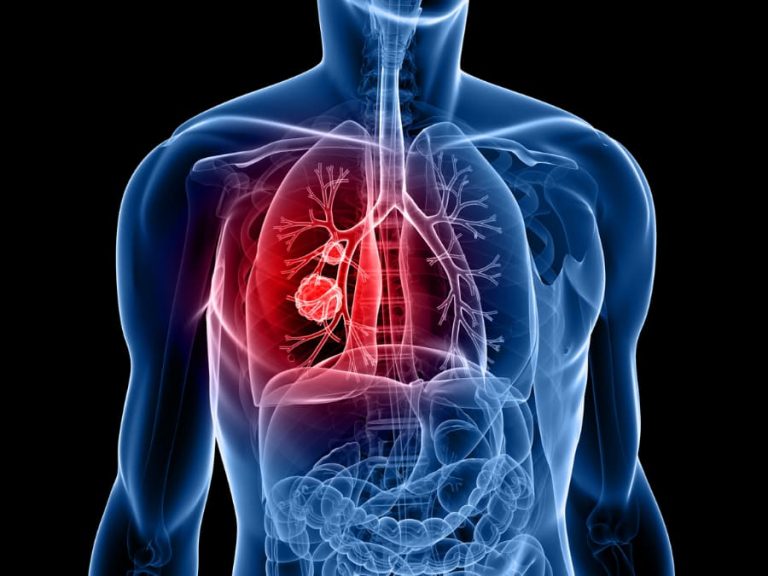
Important Changes to Make after Receiving a Lung Cancer Diagnosis
When people receive a lung cancer diagnosis, their oncologists will often recommend that they make certain lifestyle changes to reduce their symptoms, strengthen their immune
HIPAA Alert: Potential Data Breach Learn More
Questions on Oncology, Hematology and/or Infusion Clinical Services due to COVID-19 Crisis – CALL 833-698-1623
Important Information for Our Patients Regarding the Coronavirus.
RCCA Providing Area Cancer Patients with Access to Care During Coronavirus Outbreak
RCCA Offering Patients Virtual Visits During Coronavirus Pandemic
Lung carcinoid tumors are a rare type of lung cancer originating in the neuroendocrine cells. Patients who receive treatment for the most common type of lung carcinoid tumors have an average 5-year survival rate of 85% to 95%.
The highly experienced medical oncologists of Regional Cancer Care Associates, deliver advanced treatment, including targeted therapy, for lung carcinoid tumors, as well as for other cancers and blood disorders, to patients in New Jersey, Connecticut, Massachusetts, and the Washington, D.C., area. Read on to learn more about the symptoms, risk factors, and treatments for carcinoid tumors of the lung.
Neuroendocrine cells are found throughout the body. They produce hormones, neurotransmitters, and related substances. In the lungs, these cells play a role in managing air and blood flow and the growth of other cells. They also monitor the amount of oxygen and carbon dioxide in inhaled air and release chemicals. When neuroendocrine cells grow too fast, they create a small carcinoid tumor.
Only cancers stemming from neuroendocrine cells in the lungs are carcinoid tumors. Doctors divide lung carcinoid tumors into two groups:

The TNM system is the most frequently used method for characterizing the stage of lung carcinoid tumors. This system bases results on three aspects:
Doctors assign numbers or letters after T, N, and M that represent more information about each factor. The higher the number, the more advanced the cancer. Once doctors determine the T, N, and M categories for a patient, they group the information into a stage. The American Cancer Society provides more information on the specific stages of lung carcinoid tumors and their significance.
Symptoms are fairly uncommon in people with lung carcinoid tumors — only about 25% of people with the tumors experience them. When present, the signs of carcinoid tumors include:
Of course, these symptoms can indicate a different disorder, as well. For example, the cancer shares some signs with pneumonia. Prompt medical evaluation of symptoms is important because physicians have the diagnostic tools to determine if a patient has a lung carcinoid tumor or another condition.
The exact causes of lung carcinoid tumors remain unclear, as do risk factors for the disease. In some cases, there is no obvious risk factor. That said, physicians have observed that the following may increase risk for the condition:
Because neuroendocrine cells are related to hormones, doctors typically search for hormonal abnormalities when evaluating a patient for lung carcinoid tumors. A key test used for diagnosing the disease is a bronchoscopy. This procedure enables a physician to visualize the lungs to detect irregular growths. Other diagnostic tools used to identify carcinoid tumors include:
Early detection of lung carcinoid tumors is vital to ensure that patients receive the treatment they need as soon as possible. Treatment varies depending on the tumor’s size and the patient’s overall health, but the main options are radiation therapy and the following surgeries:
Targeted therapy is another form of r cancer treatment that may be used for lung carcinoid tumors. Unlike chemotherapy drugs that can harm healthy cells while killing tumor cells, targeted drugs search specifically for cancer cells and so avoid interfering with healthy cells. This form of treatment uses monoclonal antibodies, small-molecule drugs, and other medicines to target cancerous cells.
Find targeted therapy for lung carcinoid tumors, plus treatment for other cancers and hematologic conditions at Regional Cancer Care Associates. Patients in New Jersey, Connecticut, and the Washington, DC area can rely on RCCA’s team of highly experienced oncologists and hematologists to provide comprehensive and compassionate care including targeted therapies, when appropriate, and other cutting-edge treatment modalities. Contact Regional Cancer Care Associates to learn more about carcinoid tumors of the lung or visit one of RCCA’s many locations for treatment.
If you or a loved one is battling non-Hodgkin lymphoma, you aren’t alone. Our experts at Regional Cancer Care Associates are dedicated to delivering accurate diagnoses and effective treatments. To find out more or make an appointment, get in touch with us at one of our locations throughout Connecticut, and New Jersey.

When people receive a lung cancer diagnosis, their oncologists will often recommend that they make certain lifestyle changes to reduce their symptoms, strengthen their immune

A patient’s first mammogram can be an anxiety- and stress-inducing event. However, you can alleviate these feelings by becoming educated and knowledgeable about the screening

Patients diagnosed with cancer may be treated with radiation therapy, which uses high-energy beams or radiation-emitting “seeds” placed within the body to kill cancer cells.

Regional Cancer Care Associates is one of fewer than 200 medical practices in the country selected to participate in the Oncology Care Model (OCM); a recent Medicare initiative aimed at improving care coordination and access to and quality of care for Medicare beneficiaries undergoing chemotherapy treatment.